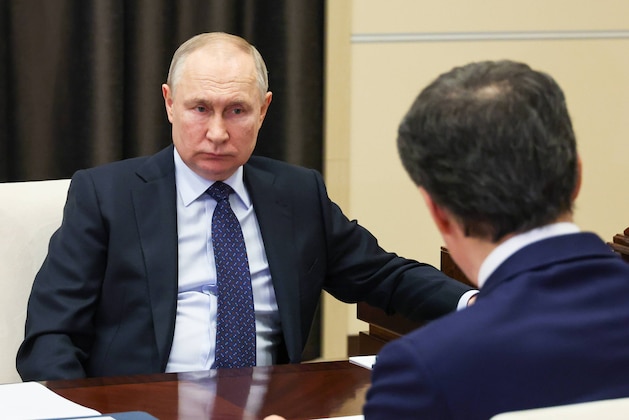The die is cast: Germany supplies Leopard tanks for the Ukraine war. While half of the Germans are celebrating, the other half is dismayed and worried. Has Moscow’s red line now been crossed? Are we getting dragged into this war? And above all: what happens now?
To start with the concerns of one half: Vladimir Putin does not start a third world war because of a few dozen “leopards”. The decision is very annoying for Russia, but there is no leverage against Germany. All we need from Moscow is gas, and we don’t even want that for free at the moment. There are no other dependencies.
And the picture of our country that Putin’s propaganda will now paint may be painful for us, but it has no counterpart in reality. It may take a while, but this time it is the Russians, not the Germans, who have yet to learn the painful lesson: not to believe everything their rulers say and not to be indifferent to their own country’s war of aggression.
The delivery of modern Western tanks is now an urgent necessity, as Ukraine threatens to collapse under the blows of a new major Russian offensive in the spring. Europe, the West, must not abandon Ukraine. And the delivery of tanks, if implemented in time, can put an iron brace on Kyiv and limit Moscow’s fantasies of conquest.
This decision thus buys valuable time for politics, and it also strengthens Ukraine’s negotiating position if it is possible to bring the belligerents back to the negotiating table later this year, with whatever mediation. As long as Putin still has hope of a victorious peace, he will play the card of violence. This chance is now even smaller.
dr Joachim Weber is a Senior Fellow at the CASSIS Strategy Center at the University of Bonn, where he teaches and researches strategy and security policy. He is considered an expert on Russian issues and the Far North, maritime security, armaments policy and armed forces. He is also a non-resident senior fellow at the Institute for Security Policy at the University of Kiel (ISPK). The author looks back on a lengthy career in various federal authorities and ministries with previous activities in the field of civil protection and critical infrastructure, maritime security and armaments industry.
But cheering over this Panzer decision, which comes very, very late, is still inappropriate. We are slipping more and more into involvement in this war. Next come the fighter jets or attack helicopters? And then what? The tank decision buys us all precious time to take a deep breath and think deeply: are we on the right track?
Against a brutal attack, that’s for sure, only consistent resistance helps. This was no doubt true for the first few months of this war, and probably still so now. But the almost never-ending debate on tanks has also relentlessly exposed Western disagreements.
Towards the end, almost everyone, especially the Warsaw government, agreed, at least when it came to bashing Germany: the Germans would have to deliver Leos, but once again backed down. The fact that the British only wanted to sell their more than 400 “Challenger” tanks in homeopathic doses was almost completely ignored.
Book tip: “Arctic conflict area.: The great powers and the high north” by Joachim Weber at Amazon
France, Macron said at the weekend, does not want to deliver any of its “Leclerc” tanks at all and is content with a few wheeled vehicles. And the US government, in possession of at least 8,000 M1 Abrams tanks, muttered techs about logistical problems and that it was somehow difficult to deploy the M1 in Ukraine.
However, 30 kilometers west of the Ukraine, in Poland, these difficulties do not exist, and in these weeks the delivery of over 400 M1 tanks to Poland, along with the associated logistics facilities, will begin. Credibility looks different.
But even worse than the disagreement revealed in the “Hannemann – go ahead” games of the partners in the alliance is a far more serious aspect: So far there is a lack of a recognizable Western strategy in this war: To what end , to what end is this war waged that we get caught up in more and more?
Somehow allow the present or the rest of Ukraine to survive, as was probably the intention in the first months of the war? To enable the Ukrainians to push back the Russians from newly occupied territories? Kicking the Russians out of the whole Donbass, that is, back to the state border of early 2014? Or even recapture Crimea?
Kyiv has every moral and legal mandate to do so. But is that also wise for us, and will this end this war? Will Moscow carry out its threats and use a nuclear bomb if it invades Crimea? Will Putin fall and the Russian Federation fall apart with thousands of nuclear weapons in multiple hands? Or will a far more radical exponent take the helm in Moscow, who will fight the final battle with the “collective West” by any means necessary?
Finally, how much destruction can Ukraine endure in the long run? There is no coherent strategy yet, and it might be far wiser not to experiment all this to the sweet or bitter end. The answers to these questions should be worth more debate for us than the question of one or the other weapon system that slowly threatened to get us in the head.
















































